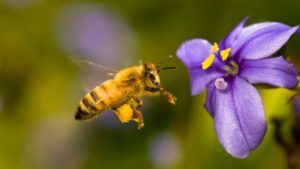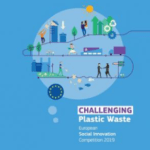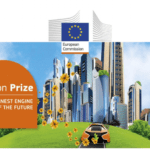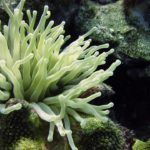Wild pollinators are declining in occurrence and diversity in the EU and numerous species are threatened with extinction.
Specific Challenge
This is a serious cause for concern because pollinators are an integral part of healthy ecosystems, where they play a central role in the maintenance of ecosystem functioning. Without them, many plant species would decline and eventually disappear, along with the organisms that depend on them.
Scope
Building on the results of previous and/or currently ongoing EU-funded research projects, taking account the follow-up of the IPBES assessment on pollinators, pollination and food production, and in line with the EU Pollinators Initiative, actions should develop tools, guidelines and methodologies to better understand, analyse, assess and possibly predict the trends and causes of the wild pollinators decline, in particular their interaction and cumulative effects, the links between pollinator, plant, biodiversity, under farming and other land management practices, and ecosystem functioning.
They should assess and valuate the wild pollinators ecosystem services and their impacts on nature, society, human wellbeing and the economy at different spatial scales. Actions should address the relations between plant diversity and pollinator diversity, competition for floral resources and interchangeability, as well as factors determining spatio-temporal variation of pollinator communities, including ecological and human factors such as land use change, agricultural land management and climate change.
Actions should bring further insight on how the composition and configuration of the landscape affects plant-pollinator interactions, what influences the pattern of movement of pollinators across landscapes and how changes in species mobility and foraging behaviour impact the reproduction of plants.
Actions should take advantage of data and information provided by the Copernicus programme, in particular from the Copernicus Land Monitoring and Climate Change Service. A systemic approach should be favoured considering all factors influencing plant – pollinator diversity and distribution. They should mobilise wider public engagement through, for example, citizen science initiatives and should undertake extensive knowledge dissemination and communication activities towards policy makers and other stakeholders and inform relevant science-policy processes and relevant policy actions at EU, Member State and regional levels.
The Commission considers that proposals requesting a contribution from the EU in the range of EUR 5 million would allow this specific challenge to be addressed appropriately. Nonetheless, this does not preclude submission and selection of proposals requesting other amounts.
Expected impact
The project results are expected to contribute to:
- mitigation of causes and consequences and reverse trends in wild pollinators decline;
- better informed EU-wide and global pollinators relevant policy and decision-making through timely dissemination of research outcomes to UN conventions, IPCC, IPBES and SBSTTA;
- more accurate assessment, predictions, valuation and mapping of the multiple ecosystem services linked to wild pollinators, enabling their mainstreaming into natural capital accounts;
- enabling adequate policy responses in the areas of the environment, agriculture and health, and allow tracking EU progress towards the UN Sustainable Development Goals 2 (‘Zero hunger’) and 15 (‘Life on land’);
- delivering key knowledge for the preparation of key indicators and methodologies for monitoring pollinators;
- an integrated assessment framework to address pollinators decline and its impacts on nature, society, human wellbeing and the economy.
Deadline
13 February 2020 at 17:00 Brussels time







Leave a Reply